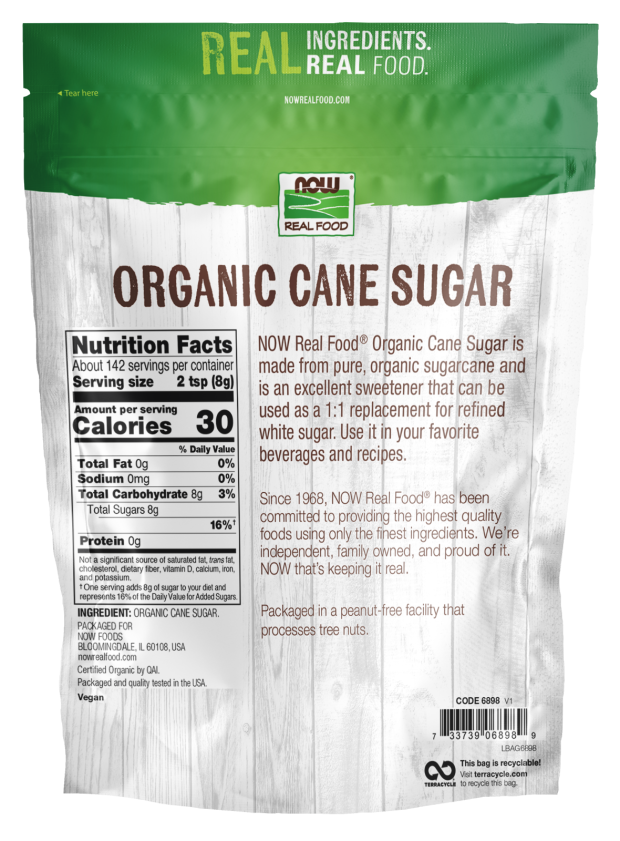An In-depth Review of the Wellness and Economic Implications of Walking Stick Sugar Processing on Regional Areas
Walking cane sugar processing plays a crucial role fit the financial landscape of local areas, supplying employment possibility and promoting secondary industries. However, the health ramifications associated with high sugar intake can not be neglected, as they contribute to climbing rates of obesity and diabetes. This nuanced dynamic welcomes an essential exam of just how communities can enhance economic gains while dealing with the pressing wellness difficulties they encounter. The expedition of lasting practices and academic campaigns might simply hold the trick to fixing up these conflicting rate of interests. What techniques might areas apply to accomplish this equilibrium?
Economic Advantages of Walking Stick Sugar Processing
Cane sugar handling provides substantial financial benefits that expand past the instant farming sector. The farming and handling of sugarcane produce various job opportunities, from farming to production and distribution. This work generation not just sustains neighborhood economic climates however additionally promotes neighborhood advancement by supplying stable revenue resources for family members.
Moreover, the sugar sector boosts ancillary businesses, including transport, tools supply, and product packaging solutions (Cane Sugar Processing). As these markets expand, they contribute to an extra robust economic structure, enhancing general community strength. The export potential of processed walking cane sugar even more enhances economic advantages, positioning areas as affordable gamers in worldwide markets
Investment in modern processing centers can result in boosted performance and effectiveness, thus minimizing waste and optimizing source use. This change not just profits the local economy however additionally sustains sustainability efforts by reducing environmental effects.
Furthermore, the revenue produced from walking cane sugar processing can be reinvested in local infrastructure, education and learning, and healthcare, promoting all natural area growth. In general, the economic benefits of cane sugar processing are complex, supplying a structure for withstanding prosperity in agricultural regions.
Wellness Dangers Connected With Sugar Consumption
Extreme sugar intake presents substantial wellness risks that warrant significant attention. High intake of added sugars, particularly from refined foods and beverages, has been connected to countless health difficulties.
Additionally, high sugar usage is linked with heart disease. Raised blood sugar degrees can result in insulin resistance, a precursor to different heart-related problems. Additionally, sugar can have damaging impacts on oral health and wellness, causing dental caries and periodontal illness, as germs in the mouth flourish on sugar, generating acids that erode tooth enamel.
Additionally, emerging research study recommends a prospective link in between high sugar intake and psychological health problems, such as depression and stress and anxiety. As areas grapple with these health threats, it ends up being vital to promote recognition and motivate healthier nutritional choices. Dealing with sugar consumption is crucial not only for private health but likewise for the overall health of neighborhood communities, stressing the need for extensive public wellness techniques.
Ecological Impacts of Sugar Production
Regularly overlooked in conversations regarding sugar's implications is the significant environmental influence of sugar manufacturing. The farming of sugarcane typically demands extensive land use, leading to logging, loss of biodiversity, and disturbance of local communities. The conversion of forests and marshes right into sugar plantations can cause environment damage, threatening numerous varieties and modifying environmental equilibrium.
In addition, sugar manufacturing is resource-intensive, consuming considerable quantities of water for watering. This can result in depletion of regional water resources, negatively affecting both agricultural practices and community accessibility to clean water. Furthermore, making use of chemical plant foods and pesticides in sugarcane farming can contribute to soil degradation and water pollution, as runoff from these chemicals gets in close-by rivers and lakes, affecting marine life and human health and wellness.
The environmental impact prolongs to the handling stage, where energy usage and waste generation additional aggravate eco-friendly worries. Air air pollution from melting sugarcane areas, in addition to greenhouse gas emissions, add to climate modification. Thus, the environmental effects of sugar manufacturing warrant serious factor to consider, advising stakeholders to adopt even more lasting techniques to alleviate these negative impacts on regional ecological communities and communities.
Work Creation and Community Advancement
The ecological obstacles positioned by sugar manufacturing are commonly counterbalanced by its potential for financial advantages, particularly in task development and community advancement. The walking stick sugar industry works as a substantial source of work in several country locations, providing tasks throughout numerous skill levels, from agricultural labor to handling and distribution functions. This work not just sustains private families but likewise adds to the general financial vigor of neighborhood areas.
Moreover, the facility of sugar handling centers promotes supplementary services, such as transport services, devices supply, and upkeep service providers. As these organizations thrive, they create added work and strengthen regional economies. The revenue generated from the sugar industry also causes boosted tax obligation profits, which can be reinvested into area solutions such as infrastructure, health care, and education advancement.
Moreover, the sugar market frequently participates in community growth efforts, such as sustaining regional schools and wellness programs, thus boosting the lifestyle for locals. By fostering solid community connections and promoting financial growth, the walking cane sugar processing field plays an essential role in uplifting neighborhood populations, making it a necessary part of sustainable development approaches in sugar-producing regions.
Harmonizing Wellness and Economic Growth
In browsing the complexities of walking stick sugar handling, a vital challenge depends on stabilizing health considerations with financial growth. The sugar market dramatically adds to neighborhood economies by creating jobs, promoting associated sectors, and like this enhancing tax obligation earnings. However, the wellness effects associated with extreme sugar usage can cause chronic illness such as excessive weight, diabetes mellitus, and cardiovascular issues, which can concern public health and wellness systems and decrease labor force efficiency.

Moreover, regulatory structures can play a crucial duty in leading industry techniques in the direction of even more health-conscious and sustainable techniques. By cultivating cooperation between government bodies, health organizations, and the sugar market, neighborhoods can browse the duality of wellness and economic growth, making sure that the advantages of walking stick sugar handling are equitably shared while focusing on public health and wellness.
Final Thought
In conclusion, the processing of walking stick sugar provides both considerable economic advantages and noteworthy health dangers for regional communities. While it cultivates work production and boosts regional advancement, the connected wellness worries, particularly relating to weight problems and diabetes mellitus, require a mindful balancing act. By promoting responsible consumption and investing in neighborhood education and sustainable practices, it is feasible to make best use of economic advantages while minimizing damaging wellness results, therefore making certain a much healthier future for regional populations.
In addition, sugar can have destructive impacts on oral wellness, resulting in tooth cavities and periodontal illness, as bacteria in the mouth grow on sugar, creating acids that erode tooth enamel.
Dealing with sugar consumption is critical not just for individual wellness yet likewise for the total wellness of local areas, stressing the need for comprehensive public health and wellness approaches.
Regularly neglected in conversations regarding sugar's effects is the considerable environmental influence of sugar production. The health ramifications connected with too much sugar consumption can lead to persistent conditions such as excessive weight, diabetic issues, and cardio issues, which can problem public health visit this site right hereContinue systems and lessen workforce performance.
